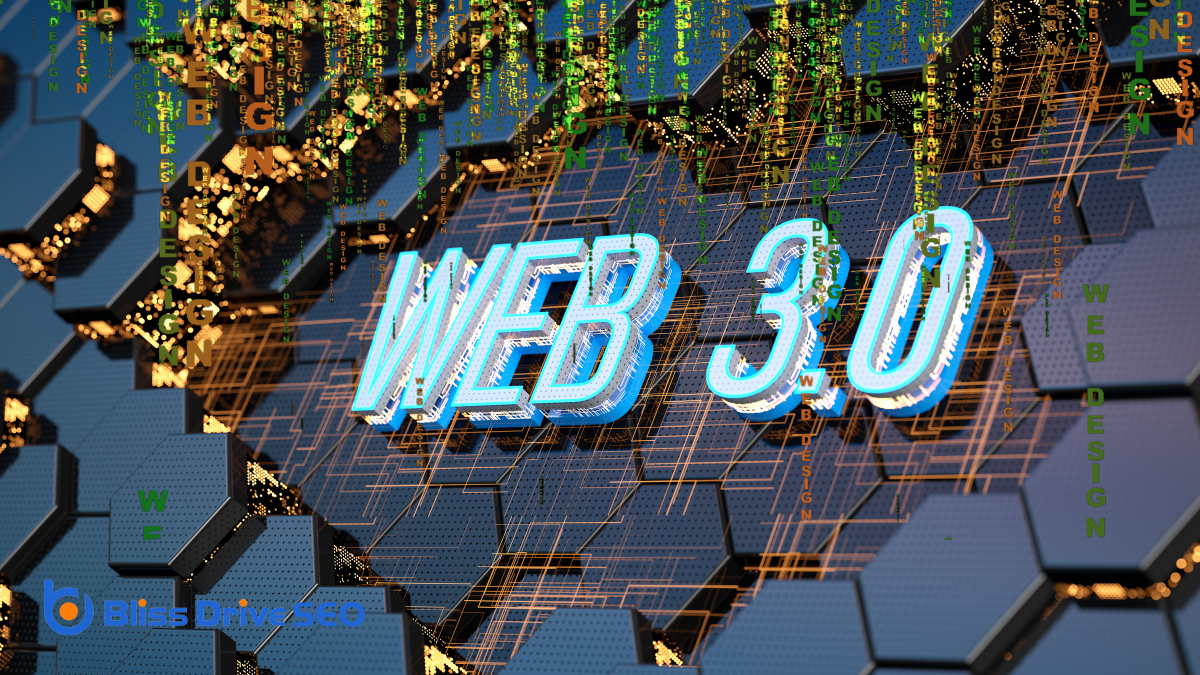Learn More About Us

You're probably wondering if venturing into the world of Web3 demands coding skills. The truth is, while coding can certainly open doors to developing decentralized applications and smart contracts, it's not the only path. Many roles within the Web3 ecosystem don't require you to write a single line of code. From marketing to community managementThe process of building and managing a brand's social media community., there's a place for diverse skill sets. Even no-code platforms are rising, allowing broader participation. But what exactly are these non-coding opportunities, and how can you effectively engage in this evolving space? Let's explore what's beyond the code.
When it comes to understanding Web3 basics, you'll find that it's all about decentralization, transparency, and user empowerment. Web3 represents the next phase of the internet, where control shifts from centralized entities to individuals like you. Instead of relying on a few big companies to manage everything, Web3 enables a more distributed approach. This means that data and services are spread across networks, minimizing the risk of single points of failure and reducing the influence of corporate giants.
You'll appreciate the transparency Web3 offers. Information is stored in a way that's open and accessible, allowing anyone to verify transactions and activities. This transparency builds trust and guarantees accountability, as every action is recorded and visible to all. By understanding these principles, you become an informed participant in this new digital landscape.
User empowerment is another cornerstone of Web3. It gives you more control over your data and digital identity. Instead of simply handing over your information to third parties, you can decide who accesses your data and how it's used.
This shift empowers you to engage with digital spaces on your own terms, fostering a more equitable internet experience.

As you explore Web3, you'll quickly notice blockchain's essential role in this decentralized world. Blockchain acts as the backbone of Web3, providing a secure, transparent, and immutable ledger that records transactions and data across a network. This technology empowers you to interact directly with others without needing intermediaries like banks or tech giants.
As you dive deeper, consider these three key aspects of blockchain:
Understanding these elements helps you grasp why blockchain is vital for Web3's growth. It enables a more open, equitable digital landscape where you can participate freely, knowing your interactions are secure and verified.
The role of blockchain is foundational in shaping the future of the internet.
Infrequently, you might find yourself in a digital landscape that demands a new set of skills, and Web3 is precisely that domain. As you navigate this evolving world, understanding coding becomes increasingly valuable. Web3 builds on blockchain technology, which requires a foundation in programming to develop and interact with decentralized applications (dApps).
Smart contracts, a key component, are typically coded in languages like Solidity or Rust. You'll need to grasp these languages to create and manage smart contracts effectively.
Besides that, understanding web development languages such as JavaScript, HTML, and CSS enhances your ability to build user-friendly interfaces for dApps.
However, it's not just about knowing specific languages. Embracing a mindset geared towards problem-solving and logical thinking is essential. The decentralized nature of Web3 often means you'll encounter complex challenges that demand innovative code-driven solutions.
In this space, coding empowers you to shape and contribute to the decentralized web. By leveraging these skills, you can create more secure, transparent, and efficient systems.
While it's a steep learning curve, the potential to impact the future of the internet makes it a rewarding journey.
In Web3, you don't need coding skills to make an impact.
Community engagementThe interactions that users have with a brand’s content on social media. roles offerThe specific product or service being promoted by affiliates. you a chance to build and nurture relationships, while creative content creation lets you share compelling storiesA feature on platforms like Instagram and Facebook where users can post photos and videos that disap... and visuals.
Both paths provide meaningful ways to contribute to the ecosystem without writing a single line of code.
Diving into the world of Web3 doesn't mean you have to be a coding expert. In fact, community engagement roles offer fantastic opportunities to contribute and thrive without writing a single line of code. These roles are essential as Web3 projects often rely on strong, active communities to succeed. Your skills in communication, coordination, and enthusiasm for the project's mission can make a significant impact.
Here are three key community engagement roles you might consider:
Embracing these roles allows you to play an important part in the Web3 ecosystem, leveraging your non-technical talents to drive innovation and connection.
Creative content creation offers exciting non-coding opportunities in the Web3 space. If you've got a flair for storytelling or a knack for designing eye-catching visuals, Web3 is fertile ground. It's a place where your creative skills can shine, helping projects stand out in an increasingly digital world.
By crafting compelling narratives or unique art, you can engage communities and drive interest in decentralized platforms. You don't need to code to create content that resonates. Think about developing engaging blog posts, producing podcastsAudio content distributed through digital channels, often in series format., or designing graphics that explain complex Web3 concepts in a relatable way.
People are drawn to stories and visuals that make abstract ideas tangible. Your content can demystify blockchain technology, making it accessible and appealing to a broader audience.
Moreover, Web3 embraces decentralization, which means there's a demand for diverse, authentic content. You can leverage platforms like NFTs to showcase your work, reaching audiences worldwide.
Creative content creation in Web3 isn't just about information; it's about connection. You're building bridges between technology and people, creating a space where innovation meets imagination. Immerse yourself and let your creative spirit explore this vibrant digital frontier.

Starting on a journey into Web3 and coding can seem intimidating, but fear not; there's an abundance of learning resources tailored for beginners.
You don't need to have any prior coding experience to start understanding Web3 concepts. Numerous platforms and tools are designed to make your entry into this new digital domain both smooth and enjoyable.
Embrace these resources to build a solid foundation and boost your confidence.
Here's a quick list of resources to get you started:
You might think building decentralized applications (Dapps) requires extensive coding skills, but platforms now offer tools that let you create them without writing a single line of code.
Understanding the basics of smart contracts is essential, as they automate agreements and transactions on the blockchain.
As you explore these components, you'll see how they transform traditional processes into more secure and transparent operations.
Imagine diving into the world of decentralized applications (dApps) and smart contracts without needing to write a single line of code. It might sound too good to be true, but with the rise of no-code platforms, it's now possible.
These tools empower you to create and deploy dApps effortlessly, even if you don't have a technical background. By using intuitive drag-and-drop interfaces, you can focus on the creative aspects of your project rather than getting bogged down by complex coding.
Consider these three steps when building dApps without coding:
In essence, these tools open up a world where anyone can contribute to Web3, regardless of coding skills.
Smart contracts are the digital backbone of decentralized applications, operating as self-executing agreements with terms directly written into code. They don't rely on intermediaries, making processes transparent and efficient. Think of them as digital vending machines: you insert conditions and once met, the contract automatically executes the agreed-upon actions.
To understand smart contracts, you need to grasp their basic components: conditions, actions, and immutability. Conditions are predefined rules that trigger actions. Actions are the tasks executed when conditions are met, such as transferring funds or updating records. Immutability guarantees that once a smart contract is deployed, its code can't be altered, assuring trust and security.
In the context of decentralized applications (Dapps), smart contracts manage the logic and operations. They're essential for applications like decentralized finance platforms, NFT marketplaces, and supply chain tracking systems.
Learning how to read and, if interested, write smart contracts gives you the power to harness Web3's potential. Even if coding isn't your forte, understanding smart contracts helps you navigate the Web3 landscape. You'll make informed decisions, collaborate effectively, and appreciate the technology driving this digital revolution.
While coding is a cornerstone of Web3, there's a vast and exciting landscape of careers that extend beyond traditional programming roles.
If you're not a coder, don't worry—your skills are still valuable. Web3 is an evolving ecosystem that needs diverse talents to thrive.
Here are three fascinating roles you might consider:
These roles highlight that you don't need to be a coder to make a meaningful impact in Web3. Your unique skills can play an essential part in shaping the future of this transformative technology.

To engage with cryptocurrencies, you'll first need to understand the basics of crypto wallets and how they function.
Buying and selling digital currencies can be straightforward, but it's essential to familiarize yourself with the process to avoid pitfalls.
Prioritizing security best practices will help protect your assets and guarantee safe transactions in the crypto space.
Steering through the world of cryptocurrencies often begins with understanding the fundamentals of crypto wallets.
Imagine a crypto wallet as your digital safe, essential for storing, sending, and receiving cryptocurrencies. Unlike a physical wallet, a crypto wallet doesn't store the currency itself but rather the keys to access it on the blockchain.
Here's a simple breakdown to guide you:
Grasping these basics empowers you to navigate the crypto landscape confidently.
Maneuvering the dynamic world of cryptocurrencies often involves buying and selling digital assets. To get started, you'll need to select a reliable cryptocurrency exchange. Many exchanges, like Coinbase, Binance, or Kraken, offer user-friendly interfaces that simplify the process for beginners.
Once you've chosen an exchange, create an account, verify your identity, and link your bank account or credit card for easy transactions.
When buying cryptocurrencies, research your desired asset thoroughly. Check its current price, historical trends, and future potential. Once you're ready, enter the amount you wish to purchase and confirm the transaction. Your newly acquired cryptocurrency will appear in your exchange wallet, ready for trading or transferring to a more secure wallet.
Selling is equally straightforward. Decide how much of your cryptocurrency you want to sell, and place a sell order on the exchange. Once a buyer matches your order, the transaction completes, and your funds are available for withdrawal or further investment.
After you've mastered the basics of buying and selling cryptocurrencies, it's important to focus on keeping your digital assets secure. You don't want your hard-earned cryptocurrencies to fall into the wrong hands.
Here are some security best practices to take into account:
1. Use a Hardware Wallet**: These devices store your private keys offline**, away from hackers. Think of it as keeping your cash in a safe rather than under your mattress.
Hardware wallets are resistant to malware, which is common on internet-connected devices.
2. Enable Two-Factor Authentication (2FA): This adds an extra layer of security. Even if someone guesses your password, they'd still need access to your phone or authentication app to get in.
It's like having a guard dog in addition to a lock on your door.
3. Be Wary of Phishing Scams**: Scammers often mimic reputable companies** to steal your information. Always double-check URLs and email addresses.
Picture a wolf in sheep's clothing—don't let it fool you.
The blockchain revolution is reshaping the digital landscape, and Web3 stands at the forefront of this transformation. As you navigate the evolving world of Web3, you'll find it's not just about technology but a shift in how we interact with the internet.
Decentralization means you gain more control over your data and digital identity. Instead of relying on big tech companies, Web3 aims to give you ownership and privacy.
In the future, Web3 will likely become more integrated into everyday life. You'll see decentralized applications (dApps) offering new ways to engage with social media, finance, and gaming.
Imagine using a digital wallet to access various services seamlessly without the need for multiple logins. Enhanced security features will protect your data while smart contracts automate interactions, reducing the need for intermediaries.
Web3 also promises a more inclusive internet. Whether you're a developer or just curious, the tools and platforms will be more accessible, enabling you to participate without needing extensive technical knowledge.
As Web3 continues to develop, staying informed and adaptable will help you make the most of these exciting changes, shaping a future where you, the user, are at the center.

As Web3 becomes more integrated into our daily routines, you'll find numerous opportunities to get involved and explore its potential.
Whether you're a seasoned developer or a curious beginner, there's a place for you in this evolving digital landscape.
First, it's important to understand the different ways you can engage with Web3.
1. Learn the Basics: Start by familiarizing yourself with the fundamental concepts of blockchain, cryptocurrencies, and decentralized applications (dApps).
Many online resources, courses, and communities can guide you through the essentials.
2. Participate in Communities: Join forums and social media groups dedicated to Web3 topics.
Platforms like Discord and Reddit host vibrant communities where you can ask questions, share insights, and stay updated on the latest trends.
3. Experiment with dApps: Hands-on experience is invaluable.
Try out decentralized applications to understand how they work. Use crypto wallets, trade tokens, or even participate in decentralized finance (DeFi) activities to see Web3 in action.
In Web3, you don't need to be a coder to make a meaningful impact. While coding skills can enhance your experience, there are plenty of non-coding roles that are just as valuable. From community management to marketing and user experience design, your skills can contribute to this exciting new ecosystem. Explore learning resources and immerse yourself in the world of cryptocurrencies to find your nicheA specific segment of the market targeted by affiliates to promote products or services.. The future of Web3 is bright and inclusive—jump in and get involved!
